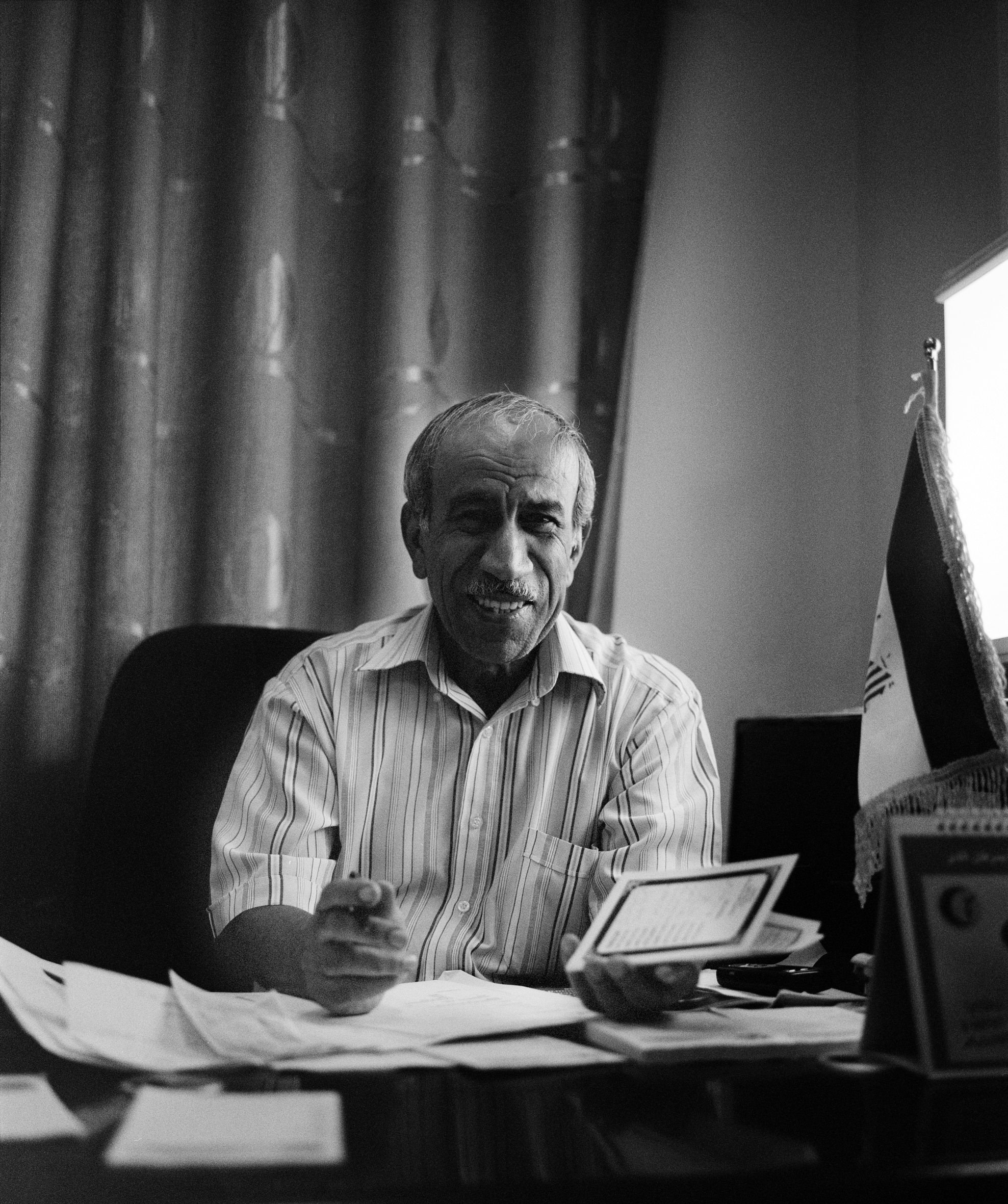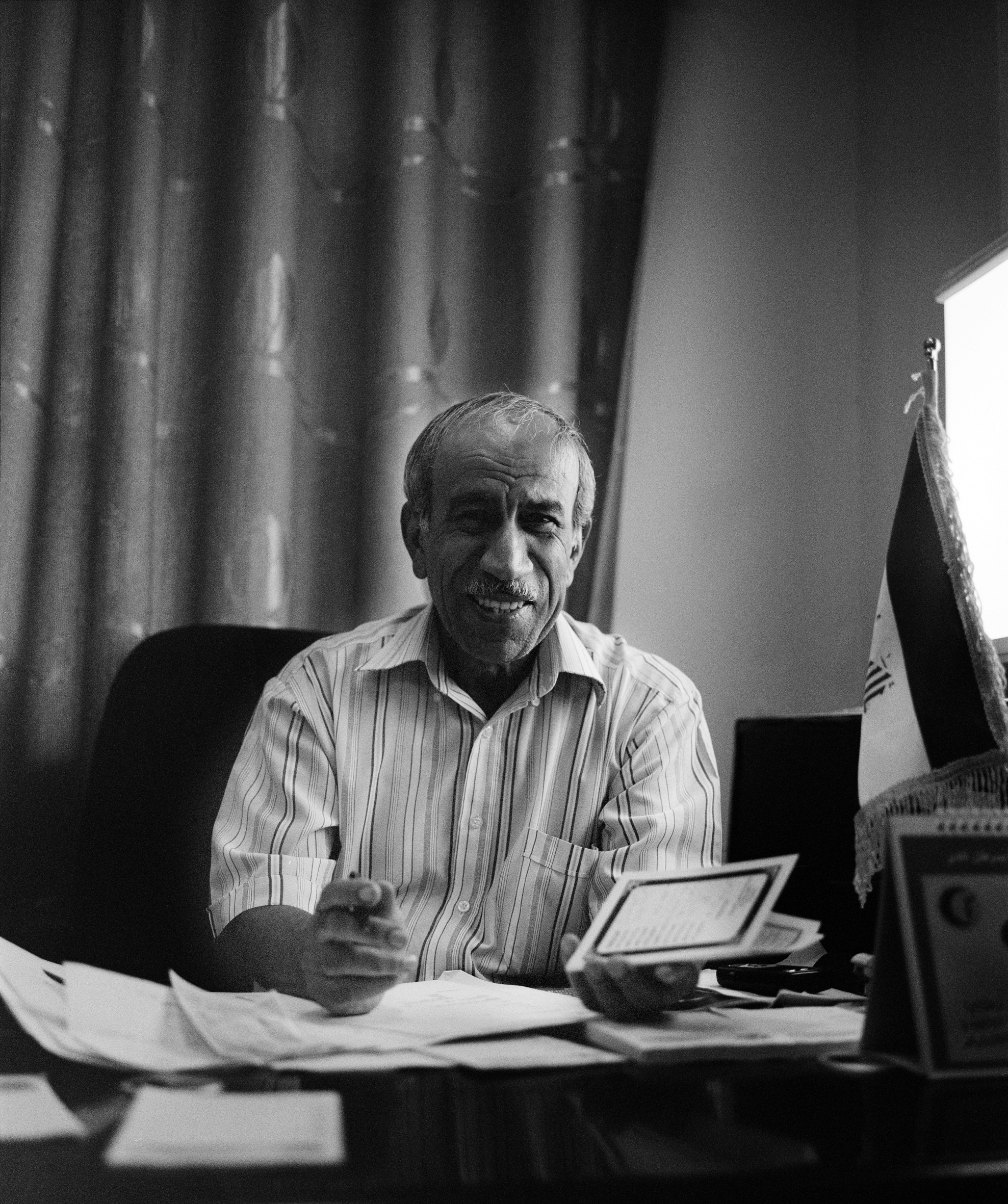A humble voice of justice for victims of toxic remnants of war
With great sadness we learned of the passing of Dr. Jawad Al Ali, an Iraqi oncologist who worked in the Basra Teaching Hospital and has been a leading voice in the long-standing debate over the use of depleted uranium munitions (DU) during the first and second Gulf wars. Dr. Al Ali passed away early December 2021 from a brain stroke in his hometown Basra, southern Iraq. Since 2008, PAX has been involved in the International Campaign to Ban Uranium Weapons, an international effort to address the use of DU, a toxic and radioactive metal used in conventional munitions. In the course of this work, we got to know Dr. Al Ali, who worked tirelessly on getting international awareness on the problems he has been witnessing for decades in his work on treating cancer patients in southern Iraq.

Driven by worries of his patients, Dr. Al Ali has been a longstanding critic of the use of depleted uranium munitions . The topic of DU is a complex problem, something Dr. Al Ali struggled with as well. Having witnessed decades of wars and conflicts, the situation in southern Iraq was dire in 2003, with severe destruction of its environment resulting in polluted water from oil and other toxics, while also having to deal with sanctions that impacted public health, and widespread collapse of environmental governance. All in all, a myriad of health challenges for severely affected populations.
On top of that, the intense use of DU by the United States and the United Kingdom in 1991, and later in 2003, sparked even more fears. These fears were exploited by Saddam Hussein, spreading propaganda about how this led to widespread cancers and birth defects that became engraved in people’s minds. At the same time, the US and its allies kept denying any such links. The absence of proper research and lack of transparency over where and how much DU was used only stoked more fears and uncertainty, as was also lamented by Dr. Neel Mani, the World Health Organization former Director of the Iraq program. Later research by PAX and ICBUW demonstrated at least 1100 heavily contaminated sites in Iraq from the 2003 use of DU by the A-10 fighter alone. Many questions on use of DU from other weapon systems remain unanswered, and limited to no clean-up work was put in place to prevent civilian exposure.
Even after 2003, political groups exploited these fears for their own purpose, while Dr. AlAli witnessed the growing cancer problems in his own clinic, and had to navigate between raising alarm to get the international attention the subject needed, while not dwelling off into conspiracy theories, often associated with the debate on DU from pseudo-scientist.
Exemplary of his kindness was the moment he came to the Netherlands to participate in a panel in Nieuwspoort at the Dutch Parliament in 2010, where PAX was presenting its first report on depleted uranium use in Iraq. Having missed the right train, we took a taxi from the train station in the Hague to his hotel. As it turned out, the taxi driver was from Basra as well and they engaged in a lively talk, and the driver was so humbled by the fact that an Iraqi doctor traveled to Europe and spoke out on the health problems, that he refused to be paid for the trip.
We met him again in early 2012 in Basra, when doing field work in southern Iraq on depleted uranium contaminated sites. Sitting in his small office in the Teaching Hospital, he recalled with his timid voice the difficulty he faced dealing with patients’ fear and scientific scrutiny. Often people came to him with minor issues, blaming DU and radiation. Indeed, the cancer rates were going up, largely due to better diagnosis, more access to health care and better registration. But he also recognized the possibility of exposure to various toxic remnants of war and wider environmental issues that could be linked with cancers. Yet how to be sure of the causation? That’s the tightrope he needed to walk: recognizing people’s concerns yet also keeping a scientific focus.
After 2003, southern Iraq was blighted with war remnants, including DU, and had a weak health sector while hardly any work was done on clean-up and remediation of pollution hotspots. The fears people had were real, yet also the government was critical of those who spoke out. t Dr. Al Ali faced several death threats in the first period after 2003, getting bullets sent to his house. With a faint smile, he recalled that one occasion in 2006, his tribe came to the rescue, driving around through Basra with a loudspeaker on a truck with armed men, stating that Dr. Al Ali is protected and anyone threatening him would face consequences. Even the government sent him an official letter telling him to stop talking about DU and health problems in 2013, fearing for public outcry and a tense relationship with the US. He continued his work nonetheless, and kept giving interviews and speaking publicly about the need for clean-up and more research into the risks of civilian exposure to DU. With success as well, an overwhelming majority of UN Member States now vote in favor of UN General Assembly resolutions calling for transparency over DU use and provide assistance for clean-up.
Every year we received a kind email from him with Merry Christmas wishes, showing that others were still on his mind. His medical expertise was and is elementary in the wider debate on the need for more public health expertise on the linkages between conflict,environmental pollution and protection of civilians.
A kind and brave man will be missed. Thank you for all your work. Rest in Peace




